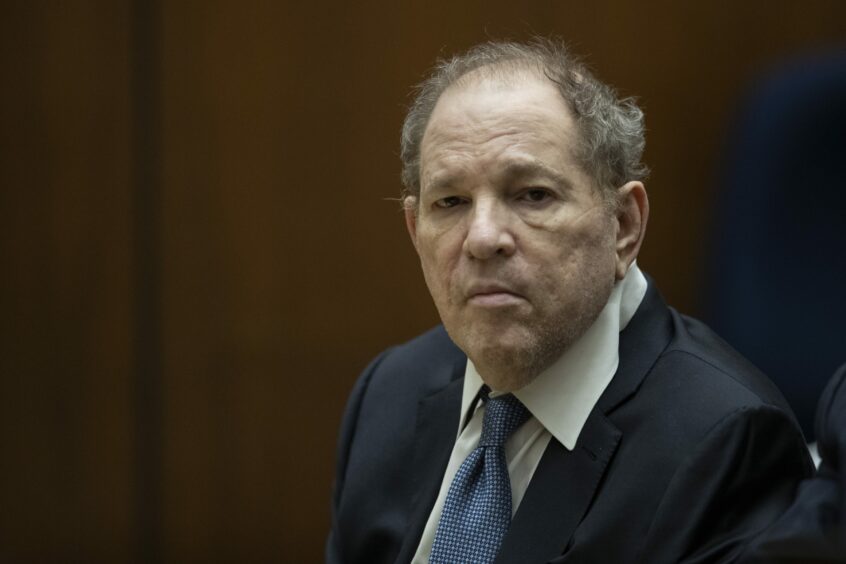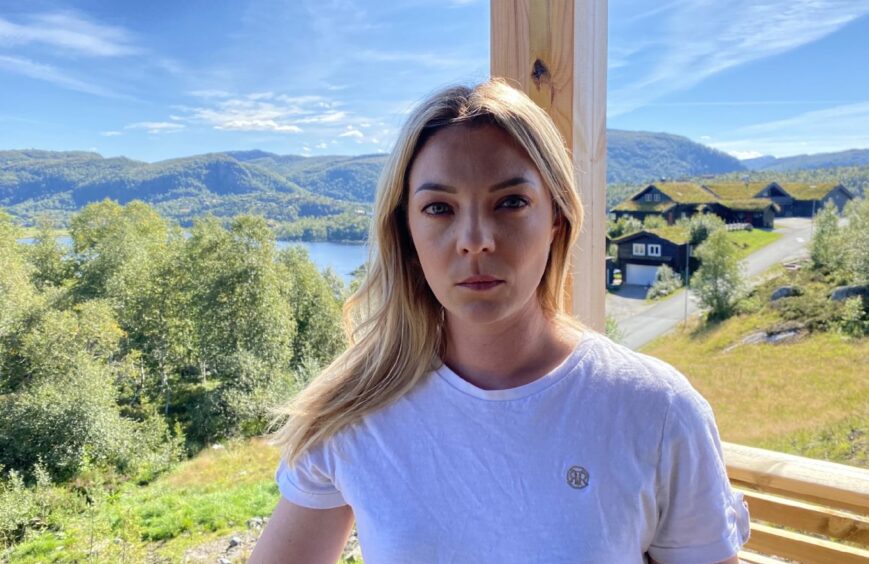
It was going to change every office, every industry. It was going to change the world. For many, it has. But for some, the change has been too slow. For others, it has barely begun.
Now, 17 years after the phrase was coined, five years after it swept the world as the banner of a grassroots women’s movement demanding an end to male sexual harassment and abuse, campaigners are asking what has #MeToo achieved and what has still to be done.
The famous hashtag and the movement it named gave women, some women at least, the courage to accuse and accuse again, forcing the issue of sexual harassment into the public eye and encouraging others to be open about their experiences.
Yet, at the same time, some question if the movement allowed all women to speak up. Is it just Hollywood actors or do less starry women feel similarly empowered? And has it prompted real change with the perpetrators of sexual harassment being pursued and convicted?
This month in Los Angeles, 70-year-old former movie mogul Harvey Weinstein was convicted of one rape charge, part of a series of accusations that he denied. The shamed mogul is already serving a 23-year sentence for a conviction for third-degree rape and sexual assault in New York and could be sentenced to up to 18 years for the rape conviction, which he says will be appealed.
It was Weinstein’s relentless, serial harassment of female colleagues and actresses that propelled #MeToo into the mainstream and this trial only marks the end of the latest legal battle between the film producer and his alleged victims. The movement, like the legal proceedings, continues.
A raft of high-profile court cases is under way in the United States, France and Australia which have been linked to the moment in 2017 when the floodgates burst and women across the globe felt able to speak of their own suffering at the hands of men.
The Weinstein revelations were first revealed in a story in the New York Times, lifting the lid on a culture of silence in Hollywood. Initially, the investigation by journalists Megan Twohey and Jodi Kantor, recently turned into She Said, a movie starring Carey Mulligan and Zoe Kazan, quoted only the actor Ashley Judd. But, within a week, Angelina Jolie, Gwyneth Paltrow, and Rosanna Arquette spoke out too.
Weinstein was the most powerful man in Hollywood, responsible for some of the most successful films of the 1990s and 2000s, from The English Patient to Pulp Fiction, a man with the power to make or break an actor’s career, exposed as a serial predator who would sexually assault women then pay them off to ensure their silence.
While the New York Times reports did not start the #MeToo movement – that began in 2006 when Tarana Burke, an activist and survivor of sexual violence, spoke out – it put jet boosters on it.
Weinstein was not the first big name to face such allegations or claims of a successful hush-up, or the last. Roger Ailes, the Fox News president, resigned in 2016 after being accused of harassing women employees. He died the following year, at the age of 77. But Weinstein, thanks to his celebrity and his A-list accusers, was to prove the catalyst for women around the world to speak about their own experiences.
A series of high-profile men were to be accused in the months that followed. Some ended their glittering careers in disgrace, others in the dock. But has the movement triggered real change for most women?
Catherine Rottenberg, a professor at Nottingham University who has studied the #MeToo movement, believes it has highlighted just how widespread sexual harassment and assault really is.
She said: “The movement has facilitated certain shifts in how we perceive gender violence. I think it is important to realise that it has exposed the systematic nature of sexual harassment and assault. It was not just a question of a few bad apples or individual men but rather manifestations of a culture where the violation of a woman’s bodily integrity was not considered a big deal.
“#MeToo has helped disclose that sexual assault had been rendered unexceptional because we live in a sexist society and has insisted this is no longer acceptable. After #MeToo I would argue it has become more difficult to simply dismiss women’s claims about sexual harassment and assault.”
Rottenburg said one of the criticisms of the movement was that it had focused attention on certain women. “#MeToo – or at least the media coverage of the movement – has often focused on wealthy, attractive and often famous and often white women,” she said.
But she believes there has been a certain backlash against women.
“We have not stopped hearing about how the movement has gone too far. So, yes there is certainly backlash,” she said.
Other commentators have spoken about how the attention on the entertainment industry distracted from the day-to-day reality of sexual harassment for women who lead very normal lives.
For Amia Srinivasan, a lecturer in philosophy at Oxford University and author of The Right To Sex: Feminism In The 21st Century, the high-profile cases were only part of the story.
“It’s what gave the social media campaign its electric energy, but it also places limits on its political possibilities,” she told Vogue.
She meant sexual abuse and domestic violence are not the preserve of Hollywood stars. They are, she said, a “mundane and ubiquitous phenomena, ones that harm poor women most of all”.
Beyond encouraging victims to come forward and changing society’s idea of what is acceptable behaviour, the movement has undeniably secured some tangible results. Last month US President Joe Biden signed legislation curbing the use of confidentiality agreements that block victims of sexual harassment from speaking publicly about misconduct in the workplace.
The Speak Out Act will bar the use of non-disclosure agreements, known as NDAs, that employees or contractors are required to sign, often as a condition of employment, and which became a key weapon of powerful and wealthy men accused of harassing junior staff.
“Instead of protecting trade secrets as it was initially intended, abusive use of NDAs silences employees and covers up serious and systemic misconduct,” said New York Senator Kirsten Gillibrand, a Democrat who introduced the measure.
Meanwhile, the Japanese army fired five servicemen and punished four others in a sexual assault case brought by a female former soldier last month. This prompted a rare investigation in the Defence Ministry which found more than 100 other complaints of harassment, officials said.
Away from the glare of Hollywood, there has been a trickle-down effect from the movement spawned by the downfall of Weinstein. That seismic shock of his disgrace will continue to reverberate in the US and around the world.
In Scotland, women have also been encouraged to speak out but, for some, their courage led only to a sense of betrayal when effective action failed to follow. Former police officer Gemma MacRae exposed a culture of bullying and harassment of women officers at Moray station but lost her career. She said: “The #MeToo movement has seen powerful global change, giving millions more women a stronger voice to speak out about the sexism, misogyny and bullying so many have endured.
“However, the movement has had a more far-reaching effect in the US because of the high-profile women of Hollywood who added their voices and persuaded society that things had to change. That has been a major turning point, and it has been long overdue.
“But, for the ordinary women and girls who continue to face those challenging behaviours on a daily basis, forcing through change has been far harder.
“It is taking much longer to see changes that were needed being adopted here. For speaking up against the bullying and sexism I and other women faced on a daily basis from the group of misogynistic officers, I lost the career I loved and have had to fight tooth and nail for the past five years to have my voice heard.
“Change seems interminably slow. It feels like victims are still the only ones being held to account while too often perpetrators simply carry on with the tacit support of their colleagues.”

Enjoy the convenience of having The Sunday Post delivered as a digital ePaper straight to your smartphone, tablet or computer.
Subscribe for only £5.49 a month and enjoy all the benefits of the printed paper as a digital replica.
Subscribe © ETIENNE LAURENT/EPA-EFE/Shutterstock
© ETIENNE LAURENT/EPA-EFE/Shutterstock © SYSTEM
© SYSTEM